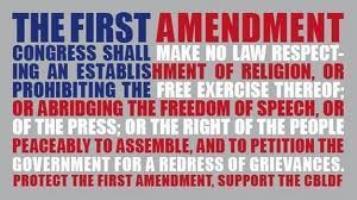
Amendment #1 |
|
Freedom of speech, religion, press, assembly, and petiton. Congress can make no law prohibiting all the rights to this amendment |
| |
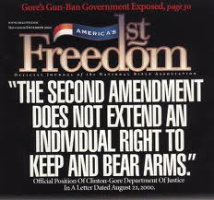
Amendment #2 |
|
right to bear arms to maintain an armed force in every state for their own protection |
| |
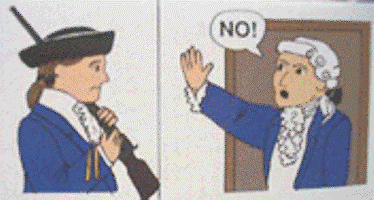
Amendment #3 |
|
No soilier may not enter thedir house without a consent of the owner
|
| |
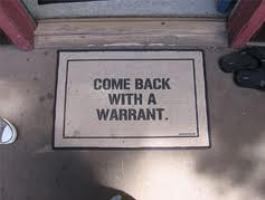
Amendment #4 |
|
Searches and Siezures. police officers may not search a house for evidence or arrest any peron without a warrent |
| |
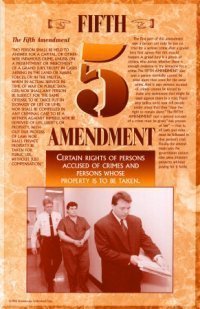
Amendment #5 |
|
Criminal proceedengs; a person can be tried only if charged or accused of a crime |
| |
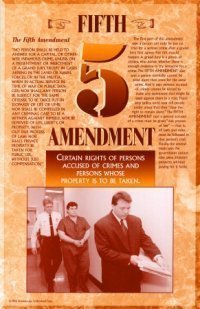
Amendment #5 |
|
Due process; no one may be tried by twice for the same crime |
| |
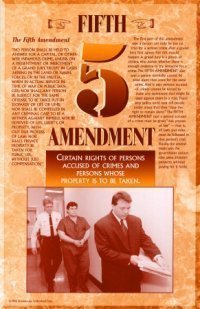
Amendment #5 |
|
Eminent Domain; no person can be legally compelled to answere any questions in any government proceeding |
| |
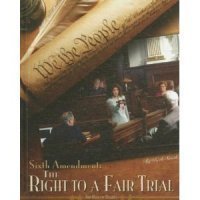
Amendment #6 |
|
Criminal Proceedings; a person accused of a crime has the right to be tried in court a jury, be informed of hwy he or she is charged, has the right to bring witnesses, and attorney |
| |
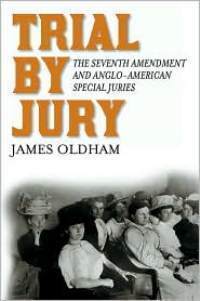
Amendment #7 |
|
Civil Rights;only applies to civil cases in fedreal courts. it does no involve criminal matters it only involves a aggrument betwwen the government and the private party the charge for the case may be put aside if both parties agree to trial by judge and without a jury. |
| |
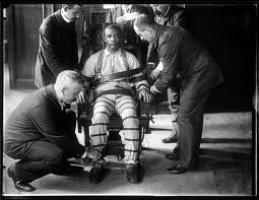
Amendment #8 |
|
Punishment for Crimes; Prohibits cruel, unusual punishments and fines, prohibits granting excessive bails |
| |
|
Amendment #9 |
|
Unenumeral Rights; Assures the recognition of those rights that people may have but are not listed here.
|
| |
|
Amendment #10 |
|
Powers Reserved to the States;
powers that are not given to the United States or prohibited by the constitution are reserved to the states respectively or to the people.
|
| |
|
Amendment #11 |
|
Suits Against States; no state should be sued in a federal court by a residen tof another state or of a foreign country |
| |
|
Amendment #12 |
|
Election of thepresident and vice president; Specifies the procedure for electing the president and the vice-president of the US separately by ballot votes |
| |
|
Amendment #13 |
|
Savery and Involinatary Servitude; Establishes that slavery is prohibited from the US and all the places that fall under its jurisdiction |
| |
|
Amendment #14 |
|
Rights to citizens; defines the parameters of the US citizenship, prohibits the states from reducing or diminishing the privileges of citizens their rights to process and the equal protection of the law |
| |
|
Amendment #15 |
|
Right to vote-Race, color, servitude; The citizens right to vote will not be denied by the states or the federal government on the basis of race, color or previous status of servitude |
| |
|
Amendment #16 |
|
income tax; Authorises the federal government to collect taxes on income without a population figure |
| |
|
Amendment #17 |
|
popular election of sentorsl; Establishes the direct election of the senators to the United States Senate |
| |
|
Amendment #18 |
|
prohibitation of intoxicating liqours;Prohibits the manufacture, sale, transportation, import or export of intoxicating beverages within the US and all the territories falling under its jurisdiction |
| |
|
Amendment #19 |
|
equal suffrage-sex; Establishes that the citizens the right to vote and will not be denied on the basis of their gender or sex |
| |
|
Amendment #20 |
|
Commencement of terms;sessions of congress; deathor disqaulification of president-elect; States in detail the terms of office that the President, the Vice-President, the Senators and the Representatives shall hold |
| |
|
Amendment #21 |
|
18th Amendment. Prohibits the importation of intoxicating beverages |
| |
|
Amendment #22 |
|
presidential tenure; Presidential terms is.limited two years and a person can be elected to the presidential office only once |
| |
|
Amendment #23 |
|
presidential electors for the disrtict of columbia; Allows the representation of the District of Columbia in the Presidential elections |
| |
|
Amendment #24 |
|
right to vote in the federal elections-tax payment; Prohibits the non-payment of poll tax or other tax as a basis of denial of the right to vote |
| |
|
Amendment #25 |
|
presidential succession, vice presidential vacancy, presidential inability; The Vice President can become President in case the President is removed from office or in case of his death |
| |
|
Amendment #26 |
|
right to vote-age; Prohibits the federal government or the state from denying any citizen who is 18 years or above, the right to vote |
| |
|
Amendment #27 |
|
Congressional pay; Establishes that any law that increases or decreases the Congressional pay will not be put into effect until the next term of office of the representatives begins |
| |
|
MaryBury v. Madison |
|
Facts Of Case: The case began on March 2, 1801, when an obscure Federalist, William Marbury, was designated as a justice of the peace in the District of Columbia.
Question: Is Marbury entitled to his appointment? Is his lawsuit the correct way to get it? And, is the Supreme Court the place for Marbury to get the relief he requests?
Conclusion:when the Constitution--the nation's highest law--conflicts with an act of the legislature, that act is invalid. This case establishes the Supreme Court's power of judicial review.
|
| |
|
McCulluch v. Maryland |
|
Facts of Case:In 1816, Congress chartered The Second Bank of the United States. In 1818, the state of Maryland passed legislation to impose taxes on the bank.
Queston:Did Congress have the authority to establish the bank? Did the Maryland law unconstitutionally interfere with congressional powers?
Conclusion:Court held that Congress had the power to incorporate the bank and that Maryland could not tax instruments of the national government employed in the execution of constitutional powers |
| |
|
Gibbons v. Ogden |
|
Facts of case:A New York state law gave two individuals the exclusive right to operate steamboats on waters within state jurisdiction
Question:Did the State of New York exercise authority in a realm reserved exclusively to Congress, namely, the regulation of interstate commerce?
Conclusion:The Court found that New York's licensing requirement for out-of-state operators was inconsistent with a congressional act regulating the coasting trade. The New York law was invalid by virtue of the Supremacy Clause. In his opinion, Chief Justice Marshall developed a clear definition of the word commerce, which included navigation on interstate waterways |
| |
|
Plessy v. Ferguson |
|
Facts of Case:The state of Louisiana enacted a law that required separate railway cars for blacks and whites
Questions:Is Louisiana's law mandating racial segregation on its trains an unconstitutional infringement on both the privileges and immunities and the equal protection clauses of the Fourteenth Amendment?
Conclusion: The justices based their decision on the separate-but-equal doctrine, that separate facilities for blacks and whites satisfied the Fourteenth Amendment so long as they were equal. |
| |
|
Brown v. Board of Education |
|
Facts of Case:After its decision in Brown I which declared racial discrimination in public education unconstitutional, the Court convened to issue the directives which would help to implement its newly announced Constitutional principle
Question:What means should be used to implement the principles announced in Brown I?
Conclusion:The Court held that the problems identified in Brown I required varied local solutions. Chief Justice Warren conferred much responsibility on local school authorities and the courts which originally heard school segregation cases |
| |
|
Roe v. Wade |
|
Facts of Case:Roe, a Texas resident, sought to terminate her pregnancy by abortion. Texas law prohibited abortions except to save the pregnant woman's life.
Question:Does the Constitution embrace a woman's right to terminate her pregnancy by abortion?
Conclusion:The Court held that a woman's right to an abortion fell within the right to privacy (recognized in Griswold v. Connecticut) protected by the Fourteenth Amendment. |
| |
|
Mapp v. Ohio |
|
Facts of Case:
Dolree Mapp was convicted of possessing obscene materials after an admittedly illegal police search of her home for a fugitive. She appealed her conviction on the basis of freedom of expression.
Question:Were the confiscated materials protected by the First Amendment? (May evidence obtained through a search in violation of the Fourth Amendment be admitted in a state criminal proceeding?)
Conclusion:The Court brushed aside the First Amendment issue and declared that "all evidence obtained by searches and seizures in violation of the Constitution is, by [the Fourth Amendment], |
| |
|
Miranda v. Arizona |
|
Facts of Case:The Court was called upon to consider the constitutionality of a number of instances, ruled on jointly, in which defendants were questioned "while in custody or otherwise deprived of [their] freedom in any significant way."
Question:Does the police practice of interrogating individuals without notifiying them of their right to counsel and their protection against self-incrimination violate the Fifth Amendment?
Conclusion:The Court held that prosecutors could not use statements stemming from custodial interrogation of defendants unless they demonstrated the use of procedural safeguards "effective to secure the privilege against self- incrimination." |
| |
|
Gideon v. Wainwright |
|
Facts of Case:Gideon was charged in a Florida state court with a felony for breaking and entering
Question:Did the state court's failure to appoint counsel for Gideon violate his right to a fair trial and due process of law as protected by the Sixth and Fourteenth Amendments?
Conclusion:In a unanimous opinion, the Court held that Gideon had a right to be represented by a court-appointed attorney and, in doing so, overruled its 1942 decision of Betts v. Brady |
| |
|
Tinker v. Des Moines |
|
Facts of Case:John Tinker, 15 years old, his sister Mary Beth Tinker, 13 years old, and Christopher Echardt, 16 years old, decided along with their parents to protest the Vietnam War by wearing black armbands to their Des Moines schools during the Christmas holiday season.
Question:Does a prohibition against the wearing of armbands in public school, as a form of symbolic protest, violate the First Amendment's freedom of speech protections?
Conclusion:The wearing of armbands was "closely akin to 'pure speech'" and protected by the First Amendment |
| |
|
Engel v. Vitale |
|
Facts of case:The Board of Regents for the State of New York authorized a short, voluntary prayer for recitation at the start of each school day
Question:Does the reading of a nondenominational prayer at the start of the school day violate the "establishment of religion" clause of the First Amendment?
Conclusion:Yes. Neither the prayer's nondenominational character nor its voluntary character saves it from unconstitutionality. |
| |
|
Texas v. Johnson |
|
Facts of Case:In 1984, in front of the Dallas City Hall, Gregory Lee Johnson burned an American flag as a means of protest against Reagan administration policies
Question:Is the desecration of an American flag, by burning or otherwise, a form of speech that is protected under the First Amendment?
Conclusion:In a 5-to-4 decision, the Court held that Johnson's burning of a flag was protected expression under the First Amendment. |
| |
|
Furman v. Georgia |
|
Facts Of Case:Furman was burglarizing a private home when a family member discovered him. He attempted to flee, and in doing so tripped and fell. The gun that he was carrying went off and killed a resident of the home.
Question: He attempted to flee, and in doing so tripped and fell. The gun that he was carrying went off and killed a resident of the home.
Conclusion:Yes. The Court's one-page per curiam opinion held that the imposition of the death penalty in these cases constituted cruel and unusual punishment and violated the Constitution |
| |
|
Korematsu v. United States, 1944 |
|
Facts of Case:During World War II, Presidential Executive Order 9066 and congressional statutes gave the military authority to exclude citizens of Japanese ancestry from areas deemed critical to national defense and potentially vulnerable to espionage
Question:Did the President and Congress go beyond their war powers by implementing exclusion and restricting the rights of Americans of Japanese descent?
Conclusion:The Court sided with the government and held that the need to protect against espionage outweighed Korematsu's rights. |
| |
|
Hazelwood School District v. Kuhlmeier, 1988 |
|
Facts of Cases:The Spectrum, the school-sponsored newspaper of Hazelwood East High School, was written and edited by students principle Reynolds found two of the articles in the issue to be inappropriate, and ordered that the pages on which the articles appeared be withheld from publication
Question:did the principal's deletion of the articles violate the students' rights under the First Amendment?
Conclusion:No. In a 5-to-3 decision, the Court held that the First Amendment did not require schools to affirmatively promote particular types of student speech |
| |
|
New Jersey v. TLO, 1985 |
|
Facts of Case:T.L.O. was a fourteen-year-old; she was accused of smoking in the girls' bathroom of her high school. A principal at the school questioned her and searched her purse, yielding a bag of marijuana and other drug paraphernalia.
Question:Did the search violate the Fourth and Fourteenth Amendments?
Conclusion:No. Citing the peculiarities associated with searches on school grounds, the Court abandoned its requirement that searches be conducted only when a "probable cause" exists that an individual has violated the law |
| |
